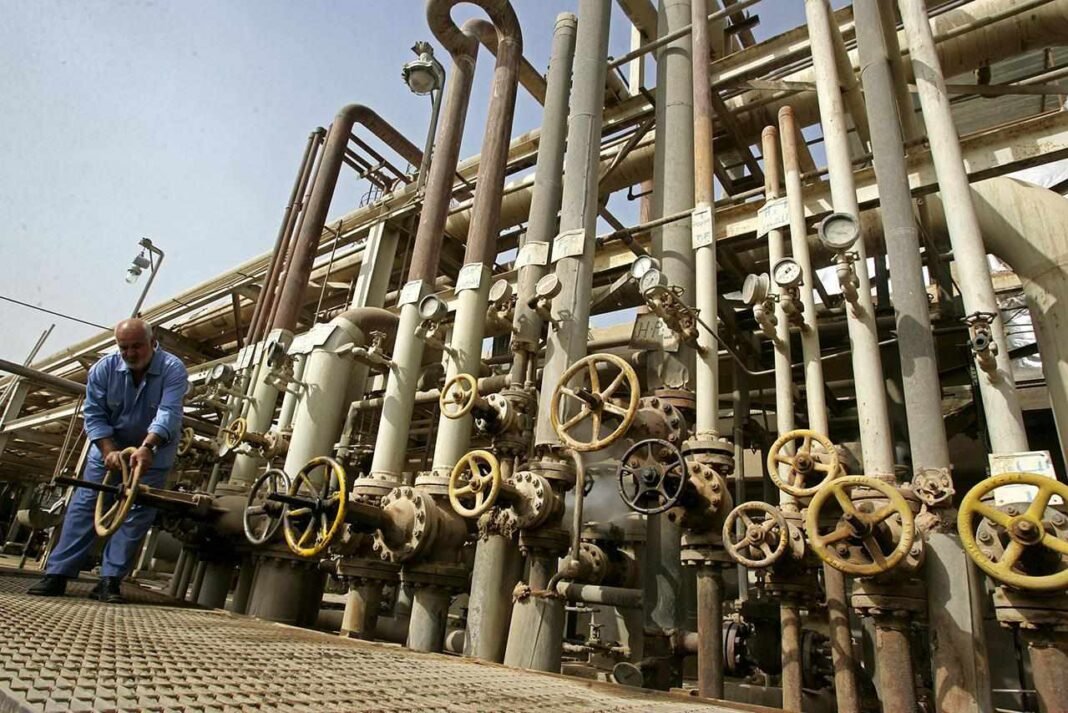Hamna Obaid
Oil, being one of the most crucial natural resources, is not only used to fuel vehicles but also serves various other purposes. It is abundantly produced in many Middle Eastern countries, utilized across industries, for heating buildings, and generating electricity. In 2022, the global consumption of oil reached almost 4.39 billion metric tons, marking a continuous rise over the past three years, startingfrom a temporary reduction during the COVID-19 pandemic.
While oil remains a vital resource for all countries, the ongoing Israeli war on Gaza raises concerns, evident in the sudden surge in oil prices following its onset. Conflict or instability in the region has the potential to disrupt oil production and transportation. However, experts predict that this increase is likely short-term, given that neither Israel nor Palestine are major oil exporters.
Now there is another perspective too, involving a broader regional conflict, as Israel and Hezbollah are also engaging in a series of strikes. This could lead to Iran’s intervention in the conflict. If Iran ultimately enters, it may disrupt energy supplies, resulting in increased oil prices, as Iran exports almost 1.4 million barrels per day, with a significant portion sold to China.
Another alarming situation could arise if Lebanon, Syria, and Egypt intervene in the war. The United States of America has already deployed its aircraft carriers to openly support Israel, and it might enter the war as well. Some economists suggest that in this case, oil prices could increase massively, ultimately affecting the global economy and increasing inflation worldwide.
Analyzing the oil-producing countries, Saudi Arabia’s oil production amounted to some 12.14 million barrels per day in 2022. Other key players are the United Arab Emirates and Iran. Qatar sent more than 70% of its LNG exports to Asia and 25% to Europe in 2022. If all these Islamic countries take a stand to support Palestine in this war, it can leave a huge footprint on oil supplies in the global arena, resulting in increased oil prices.
Gas supplies would also face repercussions, as Europe’s import of gas from Russia ended last year due to the Russian-Ukraine crisis. While increased prices would benefit these countries, a hyper increase in prices could reduce the demand for oil.
Historically, during the Yom Kippur War, also known as the Arab-Israeli War in 1973, between Israel and Arab coalition forces led by Egypt and Syria, oil prices experienced significant fluctuations. At that time, the US supported Israel, as it does today, and OAPEC, led by King Faisal, imposed an oil embargo on Israel’s supporter nations causing a global oil crisis with prices surging 300%, known as the “first oil shock.”
This sudden surge had a profound impact on the world economy, affecting the supply of fuel as well. Although circumstances today differ from the past, if Middle Eastern countries take any steps regarding oil exports, the world might witness significant ramifications.
Analyzing the current situation, nearly two months have passed since the outbreak of this conflict, and oil prices are somewhat stable. There is no indication from Middle Eastern countries regarding oil exports to the world. No one can predict whether this war will end anytime soon, as many countries, including the UN, are pressuring Israel for a ceasefire.
On the other hand, Israel continues to bomb Gaza more aggressively than ever. Moreover, Iran has already issued a warning to Israel that if a ground operation is launched, they would take part in the war and have started military exercises too.
Considering all these scenarios, the further escalation of the conflict would definitely result in a regional conflict that could have a strong impact on global oil exports and oil supplies.
But its also important to recognize that the dynamics in the Middle East and the global energy landscape are highly diverse and subject to change. The future of oil exports from the Middle East will depend on how these factors evolve over time.
Additionally, the region is characterized by diverse countries, each with its own unique circumstances, so the impact of current events may vary from one country to another. Many countries are striving to reduce their dependence on fossil fuels, which could impact the demand for Middle Eastern oil.
The global effort to combat climate change may lead to more stringent environmental regulations and commitments to reduce greenhouse gas emissions. This can impact the demand for oil and lead to changes in energy policies.
Both positive and negative aspects are there, yet the threat to Middle Eastern regional balance and stability from this discord is more obvious and can be problematic for the existing world order too.
*The author is a student of Bachelors of International Relations at Fatima Jinnah Women University.
**The opinions in this article are the author’s own and may not represent the views of The Diplomatic Insight. The organization does not endorse or assume responsibility for the content.
The Diplomatic Insight is a digital and print magazine focusing on diplomacy, defense, and development publishing since 2009.



